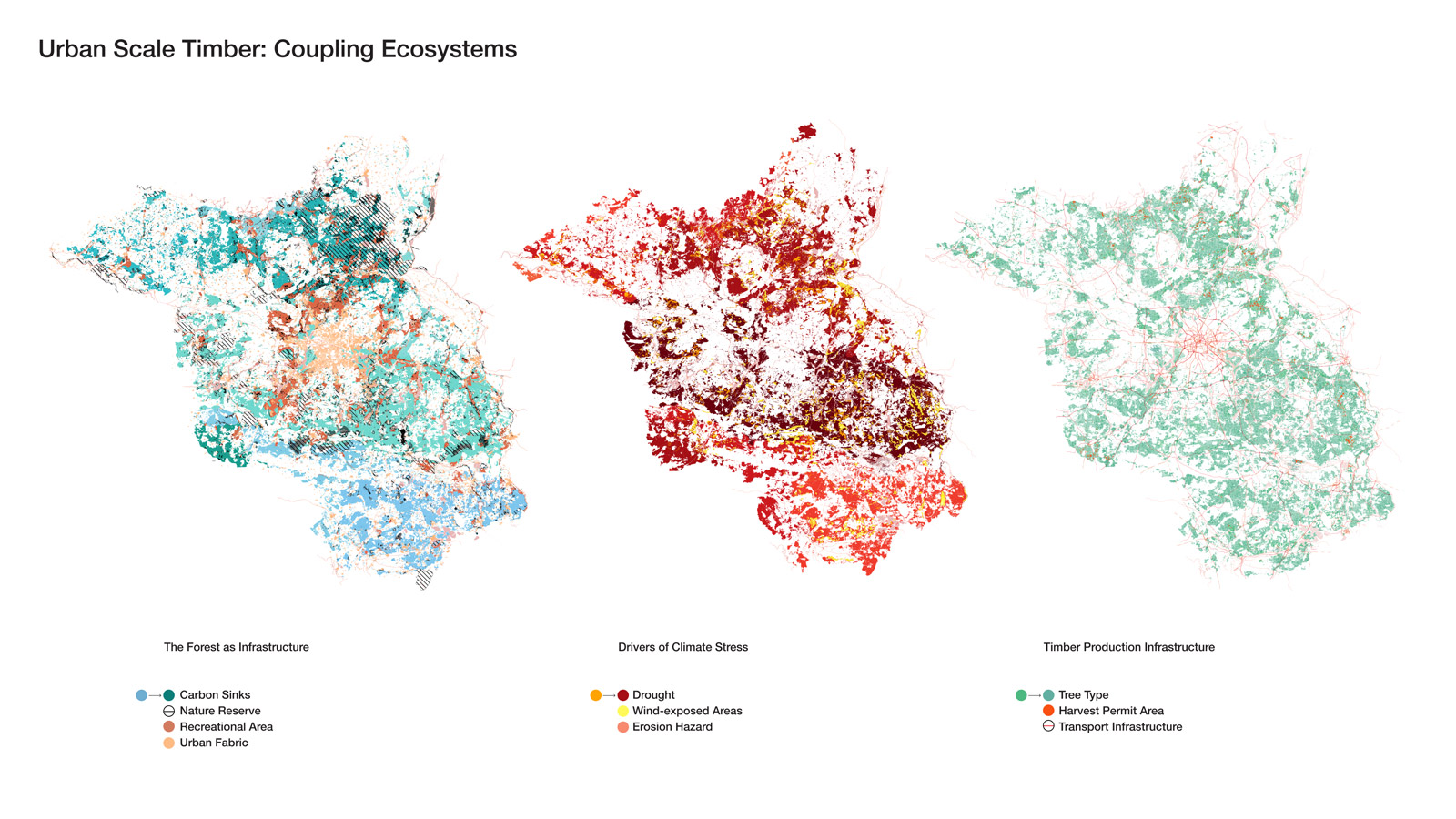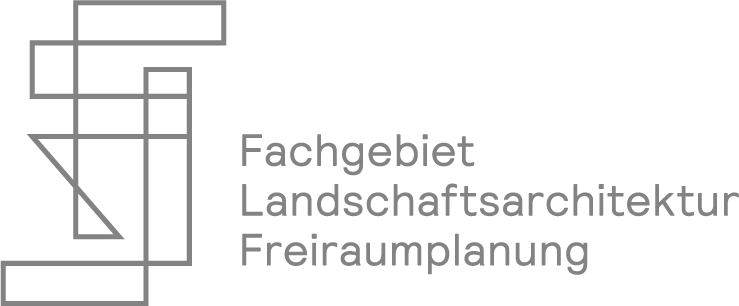MICROARTICLE #Waste & Materials
Urban Scale Timber: Coupling Ecosystems
By: Living Systems
MICROARTICLE Waste & Materials
Wissensstadt Berlin 2021
Published on June 26, 2021
In Berlin-Brandenburg’s forests, we see one cubic meter of wood growing every three seconds – which means enough material for a whole single-family house in one and a half minutes. Theoretically.
Urban scale timber offers a great deal to mitigate the construction sector’s ~40% contribution to global CO₂ emissions and thus, climate change. It not only helps to establish new long term carbon storages within the city but generates opportunities to strengthen the natural carbon sinks within our forests by making them more resilient. Yet, a growing demand for timber buildings will increase the pressure on the natural forest, as the resource’s provisioning is only one of the manifold ecosystem services. This makes the forest itself an infrastructure of sufficiency. Here, digitalisation can help planners and policy makers approach the challenges of coupling these ecosystems holistically.
Which opportunities and trade-offs are to be considered when designing policies and tools for the transformative capabilities of urban scale timber?
BB2040
[EN] Berlin Brandenburg 2040 was initiated by the Habitat Unit in cooperation with Projekte International and provides an open stage and platform for multiple contributions of departments and students of the Technical University Berlin and beyond. The project is funded by the Robert Bosch Foundation.
[DE] Berlin Brandenburg 2040 wurde initiiert von der Habitat Unit in Kooperation mit Projekte International und bietet eine offene Plattform für Beiträge von Fachgebieten und Studierenden der Technischen Universität Berlin und darüberhinaus. Das Projekt wird von der Robert Bosch Stiftung gefördert.









